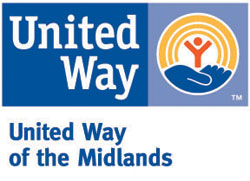 Robin Zagurski will never forget the night of June 11, 2008: the night of the Little Sioux tornado, the night four boy scouts were killed.
Robin Zagurski will never forget the night of June 11, 2008: the night of the Little Sioux tornado, the night four boy scouts were killed.
As an American Red Cross volunteer, Zagurski is trained to provide behavioral health “first aid” to families in the event of a disaster.
Upon her arrival at the Little Sioux Community Center that fateful night, law enforcement was scant on information. Loved ones waited anxiously as periodically, someone read a list of scouts transported to the local hospital. As the hours crept by, only a handful parents were left.
Zagurski assisted with two death notifications.
 |
Robin Zagurski |
Through the Red Cross, Zagurski has responded to disasters that include Sept. 11 and the Von Maur shootings.
“Research shows providing psychological first aid in the aftermath of a disaster seems to prevent the development of future problems, such as post-traumatic stress disorder,” Zagurski said.
But the Red Cross response includes much more than behavioral health responders. An entire team from public information officers to those who provide food and water is involved. And they don’t just respond to major disasters. Every time a fire strikes a family’s home in Omaha, the Red Cross is there to provide food, shelter, clothing and comfort.
|
“Whether it’s a call for blood donations or a call to help a deployed soldier, the Red Cross is there to help 24/7,” said Tina Price, CEO of the American Red Cross Heartland Chapter. “When you give to United Way, you change lives through the Red Cross and we are grateful for the support.”
Zagurski encourages UNMC employees to consider a monetary donation to the American Red Cross through the United Way campaign or donating their time.
“We could always use the help,” she said.